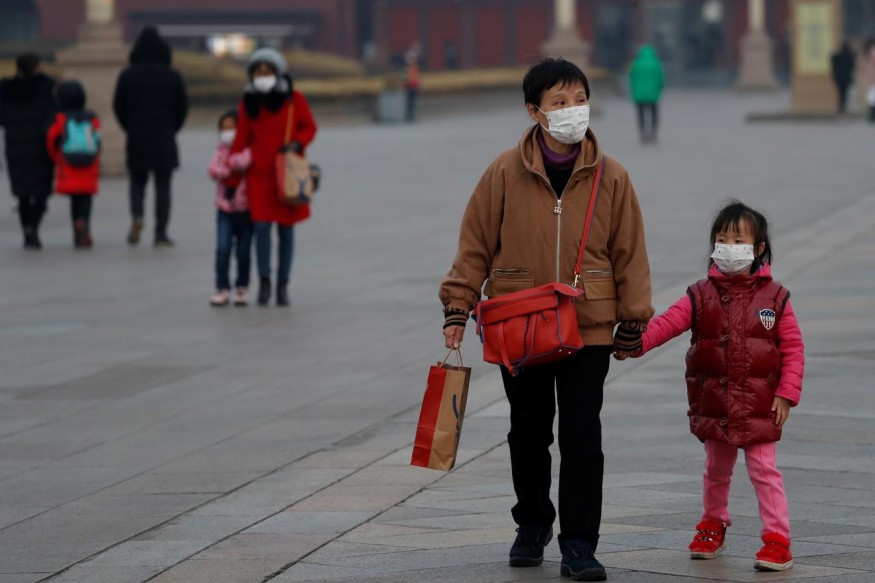China Sacrifices a Province to Save the World From the Coronavirus

The spiking increase of individuals infected with the Coronavirus has led to the death of many of China's citizens.
Zhang Yaru, a young musician, mourned when her grandmother died in a coma on Monday after the woman was repeatedly declined by hospitals for confinement.
Another story is of the deceased mother of a college graduate, John Chen, who desperately asked for help for his mother. Mrs. Chen experienced a high fever and could not stand for the long hours that are required while waiting to be tested for the virus.
And just this week, the young Chinese Ophthalmologist who first discovered the presence of the virus died making headlines around the globe.
These are only a few of the increasingly sad stories coming out of China today. Scenes of chaos and despair are the norm now in the Hubei province, a province in China where 60 million people live and the presence of the virus was first identified last December.
The cases of coronavirus have spread across the globe. This virus has impacted Hubei where it has recorded a staggering 97 percent deaths because of the illness and 67 percent of patients with symptoms. The spiking increase of death rates and infected persons in the region has overwhelmed the local health system as the fast-moving, alien pathogen is even making the most basic care impossible.
This virus caused the country to effectively lock down the region starting last month in hopes of containing the spread of the virus, not only in the nearby regions but also across the world. China has officially sacrificed its province to control the deadly virus.
According to Yang Gonghua, China's Center for Disease Control and Prevention Former Deputy Director, "If the province was not sealed off, some people would have gone all around the country to try to get medical help, and would have turned the whole nation into an epidemic-stricken area. The quarantine brought a lot of hardship to Hubei and Wuhan, but it was the right thing to do." He also added that controlling the spread of the virus is just like fighting a war, it's hard but it must be done.
Wuhan is the home of 11 million people. This is a "second-tier" Chinese city which means that it is relatively developed, but is still below the country's major metropolises such as Shanghai, Beijing, and Guangzhou. Wuhan has well-regarded hospitals, but still lacks some important resources compared to other prominent cities.
Doctors first suspected the presence of the virus to have been passed from animals to humans in the Wuhan food market during mid-December, 2019. There were also signs that the virus can be transmitted from humans to humans during the early days of January but still, the authorities allowed large-scale public events. Cases of the infected individuals became more apparent to the public around the beginning of China's Lunar New Year holiday. It emerged elsewhere after the holidays.
Zeng Yan, Wuhan University of Science and Technology Professor at the School of Medicine, said: "It came like a sudden downpour that caught Wuhan off guard." Zeng is referring to the spread of the virus.
China announced on Jan. 23 that they would take action to lock down Wuhan to prevent possible carriers of the virus from leaving the province, and those who are suspected of having it from coming in the city. The 110 intensive care unit beds intended for the patients had been filled for many days. The quarantine is becoming wider. It now encompasses most of the province.
During these days, the province has struggled, they lack basic medical supplies like surgical masks, protective suits, and high-grade disinfectant. One doctor who worked at the Third's People Hospital at Hubei province said: "We were advised to use masks, gloves, and protective clothing in a thrifty manner, and avoid drinking water so we would not have to go to the bathroom, which would require a change of protective clothing."
The lockdown did not only affect the hospitals, but it also affected the transport of medical supplies that hospitals need like masks and gloves.
The owner of an eyewear company, Ding Ze, said that their delivery of medical goggles was delayed by 10 days to Wuhan.
Ding said: "We sent the supply on Jan. 25, and they arrived at hospitals on Feb. 2. All deliveries from outside to the province were slowed by the strict quarantine procedures."
However, despite the efforts of the Chinese government to activate eight cargo carriers since Feb.2 that contains 58 tons of medical supplies and donations around the globe to Wuhan, still, the spiking increase of people infected with the virus led the hospitals to turn away its patients.
Subscribe to Latin Post!
Sign up for our free newsletter for the Latest coverage!











